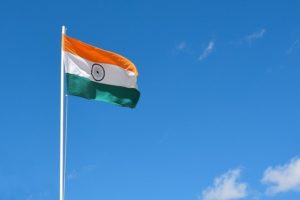United Nations: India is voting against draft resolution on the death penalty
India has voted against a proposed resolution of the United Nations General Assembly ( UNGA) on the use of the death penalty.

nited Nations: India has voted against a proposed resolution of the United Nations General Assembly (UNGA) on the use of the death penalty, claiming it runs contrary to the constitutional law of the country where the execution takes place in the “rarest of rare” situations.
The draft resolution, which was adopted at the General Assembly ‘s Third Committee (Social, Humanitarian, Cultural) on Tuesday, was approved with a reported vote of 123 in favour, 36 against and 30 abstentions.
India was among the countries that voted against the resolution calling on the Assembly to comply with international standards on the rights of those facing the death penalty and to ensure that it is not applied on the basis of discriminatory laws or as a result of discriminatory or arbitrary law enforcement.
First Secretary in India ‘s permanent UN mission Paulomi Tripathi, giving the country’s explanation of vote, said the resolution sought to promote a moratorium on executions to abolish the death penalty.
“My delegation voted against the resolution as a whole, as it contravenes Indian statutory law,” she said.
“In India, the death penalty is applied in ‘rarest of rare’ cases, where the crime committed is so severe that it shakes society’s conscience. Indian law provides for all required legal protections, including the right to a fair trial by an impartial court, presumption of innocence, minimum defense guarantees and the right to appeal by a higher court,” she said.
The passage of the draft resolution followed a heated debate and Singapore introduced an amendment on behalf of 34 countries reaffirming the sovereign right of the countries to develop their own legal system.
The committee then approved this amendment, with 14 abstentions, with a recorded vote of 96 to 73 against.
India also voted for this amendment.
By its terms, the Assembly will reaffirm the sovereign right of all countries to establish their own legal structures in compliance with their obligations under international law, including the establishment of effective legal penalties.
Tripathi said that each state has the sovereign right to determine its own legal system and appropriate legal sanctions and it was in this context that India voted for the amendment but voted against the resolution as a whole.
The delegate from Singapore decried the “one-size-fits-all” approach of the draft resolution to a delicate issue that seeks to impose a particular worldview on others.
The Singapore representative said the amendment aimed to ensure the plurality of views is respected. The amendment is simple and neutral and, Singapore said, it does not take a position on the substance of the draft resolution, nor make judgments on state policies.
Tripathi said that the Indian laws have specific provisions for the commutation of the death penalty for pregnant women and have rulings prohibiting the execution of persons with mental or intellectual disabilities whereas juvenile offenders can not be sentenced to death under any circumstances.
A superior court must also confirm death sentences in India, and an accused has the right to appeal to a high court or the Supreme Court, which has adopted guidelines on clemency and the treatment of death row prisoners, she said.
Tripathi said that “poverty, socio-economic compulsions, psychological compulsions, undeserved adversities in life” constituted new mitigating factors to be considered by courts in commuting a death sentence to life jail.
In all cases, she also said that the President of India and the governors of states under their respective jurisdictions have the power to grant pardons, repriefs, respites or remissions of punishment or to suspend, remission or commute the death penalty sentence.





